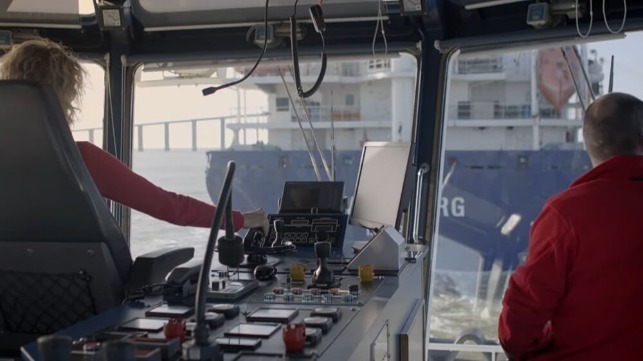Uni-Tankers Embraces Wind Power for Sustainable Shipping
Denmark’s innovative Cleanship project marks a significant leap toward more sustainable shipping practices. The project is now entering its operational phase, focusing on assessing the effectiveness of wind sails in real-world applications. A product tanker, specifically the Jutlandia Swan operated by Uni-Tankers, will serve as the test vessel, equipped with cutting-edge VentoFoils. These vertical rigid sails are designed to harness wind energy, aiming to enhance the tanker’s efficiency while reducing fossil fuel dependence. Built in 2015, this 12,500 dwt tanker is a prime example of how traditional shipping methods can evolve through modern technology.
Objectives of the Cleanship Project
- Performance Insights: Evaluate the actual performance impact of sails on the vessel’s fuel consumption and emissions.
- Інноваційні технології: Integrate modern technologies to pave the way for reduced environmental footprints.
- Цілі сталого розвитку: Contribute to global initiatives aimed at phasing out fossil fuel dependency in maritime operations.
This development is vital for logistics as shipping forms a backbone of international trade, which directly influences cargo transportation efficiency. The shipping industry’s commitment to sustainability can enhance overall supply chain operations and create safer, more environmentally-friendly transport solutions.
Traffic Trends in the Strait of Hormuz
Recent events in mid-June have notably influenced maritime traffic in the strategic Strait of Hormuz. After a series of American strikes on key Iranian nuclear facilities, there was immediate concern about shipping flows through this vital waterway. However, reports indicate that traffic levels have stabilized, showcasing resilience in the face of geopolitical tensions. Interestingly, while some fluctuations were observed, such as the temporary retreat of the product tanker Kohzan Maru, the average transit rate has mirrored pre-crisis patterns.
Implications for Global Shipping
The Strait of Hormuz is a crucial route for oil tankers, carrying a significant portion of the world’s oil supply. A steady flow of traffic is essential for maintaining stable global oil prices and subsequently affecting various logistics operations worldwide. As a result, the resilience displayed here underlines the importance of strong regulatory frameworks that allow for safe and efficient maritime navigation.
Tragedy Strikes in Indonesian Shipyard
A tragic incident occurred at a shipyard in Indonesia where a fire claimed the lives of four workers while injuring five others during maintenance of the Floating Storage and Offloading (FSO) vessel Federal II. The fire broke out unexpectedly while the workers were inside, performing necessary refurbishments following a decade-long charter engagement with a major client in China. The local authorities have been alerted, and investigations are underway to understand the circumstances surrounding this devastating event.
Key Safety Considerations
- Дотримання нормативних вимог: Incorporate stricter health and safety regulations for shipyard operations.
- Worker Training: Enhance training programs focused on emergency response and fire safety protocols.
- Equipment Monitoring: Modernize equipment with advanced safety features to prevent similar accidents.
This accident starkly highlights the need for robust safety standards and oversight in maritime industries. Recognizing the significance of workforce safety is not only crucial for the well-being of employees but is also a vital aspect of regulatory compliance that adds layers of protection within the logistical framework.
Advancements in Maritime Safety Regulations
The global maritime industry faces increasingly stringent regulations, particularly with the implementation of the FuelEU Maritime project, which aims to phase out fossil fuel reliance by establishing comprehensive regulatory measures. These labor-intensive protocols necessitate that vessels improve their electronic and mechanical systems to meet new standards. The recent outcomes from the MEPC 83 discussions indicate a push toward establishing global carbon pricing mechanisms, significantly influencing the operational landscape of global shipping.
Impact on Logistical Operations
As regulations tighten, it will likely stimulate innovations in maritime electrification, allowing shippers to adopt cleaner technologies. This shift not only contributes to environmental sustainability but can also lower operational costs over time, paving the way for competitive advantages in the logistics sector.
Висновок
The landscape of maritime safety and shipping logistics is evolving at an unprecedented pace. From groundbreaking wind propulsion research by Uni-Tankers to recent regulatory developments, the shipping industry is on a path toward greater sustainability and efficiency. While current events may pose challenges, the resilience shown in maintaining traffic levels in critical waterways like the Strait of Hormuz speaks volumes about the sector’s adaptability.
Even the most comprehensive online reviews fall short when compared to firsthand experience. For those embarking on global shipping solutions, leveraging GetTransport.com allows easy access to affordable transportation options tailored to diverse needs, including relocation and bulky items. Enjoy the convenience and reliability of selecting a transportation method that suits you, ensuring each shipment is in safe hands. It’s your world — move it your way! Забронюйте поїздку з GetTransport.com вже сьогодні!

 Розвиток морської безпеки: Аналіз інновацій і тенденцій у судноплавній галузі">
Розвиток морської безпеки: Аналіз інновацій і тенденцій у судноплавній галузі">